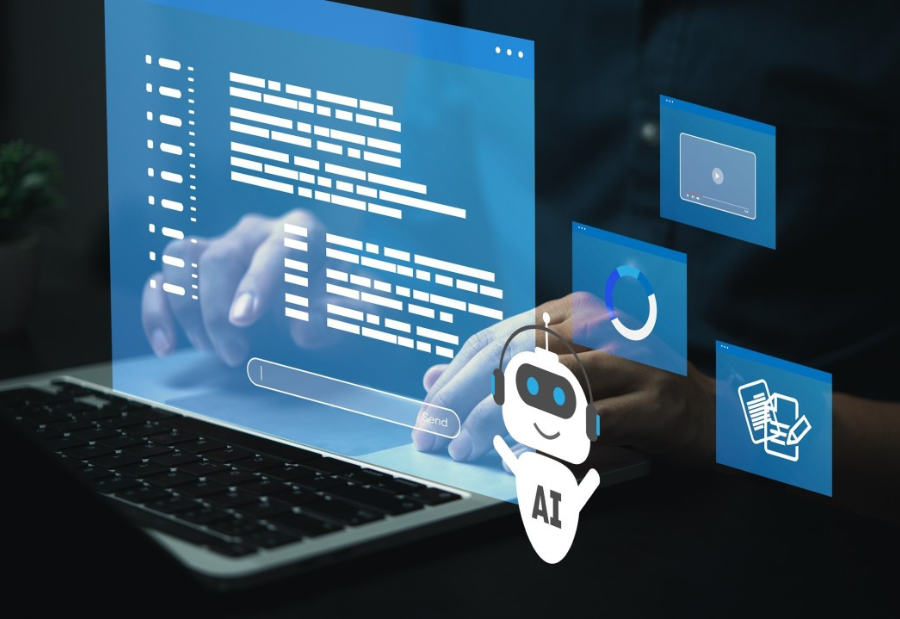AI-generated images are rapidly transforming the digital marketing landscape, offering both exciting opportunities and complex challenges. At The Mainstream, as these visuals go viral across social media platforms, marketers must navigate the ethical, legal, and strategic implications of leveraging AI in their campaigns.
The Rise of AI-Generated Imagery
Generative AI tools like Midjourney and DALL·E have democratized content creation, enabling brands to produce unique visuals quickly and cost-effectively. This has led to a surge in AI-generated content across various industries. For instance, Coca-Cola’s AI-generated holiday commercials sparked controversy, with critics labeling them as “soulless” and “embarrassing”.
Benefits of AI-generated images for Marketers
-
Cost Efficiency: AI-generated images reduce the need for expensive photoshoots and design resources, allowing for budget-friendly content creation.
-
Speed and Scalability: Marketers can produce a high volume of visuals rapidly, facilitating agile campaign strategies.
-
Personalization: AI enables the creation of tailored visuals that resonate with specific audience segments, enhancing engagement.
Ethical and Legal Considerations
While AI-generated imagery offers numerous advantages, it also raises significant ethical and legal concerns:
- Intellectual Property Rights: The use of AI to create images resembling real individuals or brands can lead to copyright and trademark infringements. For example, Jamie Lee Curtis criticized a fake AI-generated commercial that used her likeness without consent.
- Misinformation: AI-generated images can be used to spread false information, eroding public trust. A notable instance involved AI-generated deepfake videos during the 2024 Indian elections, which manipulated voter sentiment.
- Consumer Trust: A significant portion of consumers express skepticism towards AI content, with 90% wanting to know if an image was created using AI.
Best Practices for Marketers of
To responsibly harness AI-generated images for marketing:
- Ensure Transparency: Clearly disclose when content is AI-generated to maintain consumer trust.
- Obtain Proper Consents: Avoid using AI to replicate real individuals without explicit permission to prevent legal issues.
- Monitor Quality: Regularly assess AI-generated content for accuracy and appropriateness to avoid reputational damage.
- Stay Informed: Keep abreast of evolving laws and regulations concerning AI in marketing to ensure compliance.
The Mainstream Perspective
According to insights from The Mainstream, AI-generated images are reshaping marketing by providing innovative ways to engage audiences. Brands that adopt AI responsibly can combine creativity with ethical responsibility, legal compliance, and strategic effectiveness.
Conclusion
AI-generated images are reshaping the marketing world, offering innovative ways to engage audiences. However, marketers must approach this technology with caution, balancing creativity with ethical responsibility and legal compliance. By adopting best practices and staying informed, brands can effectively leverage AI-generated imagery to enhance their marketing efforts.
As The Mainstream believes, embracing AI-generated imagery with transparency and strategic foresight will define the next era of marketing innovation.
Also read: Viksit Workforce for a Viksit Bharat
Do Follow: The Mainstream formerly known as CIO News LinkedIn Account | The Mainstream formerly known as CIO News Facebook | The Mainstream formerly known as CIO News Youtube | The Mainstream formerly known as CIO News Twitter |The Mainstream formerly known as CIO News Whatsapp Channel | The Mainstream formerly known as CIO News Instagram
About us:
The Mainstream formerly known as CIO News is a premier platform dedicated to delivering latest news, updates, and insights from the tech industry. With its strong foundation of intellectual property and thought leadership, the platform is well-positioned to stay ahead of the curve and lead conversations about how technology shapes our world. From its early days as CIO News to its rebranding as The Mainstream on November 28, 2024, it has been expanding its global reach, targeting key markets in the Middle East & Africa, ASEAN, the USA, and the UK. The Mainstream is a vision to put technology at the center of every conversation, inspiring professionals and organizations to embrace the future of tech.




